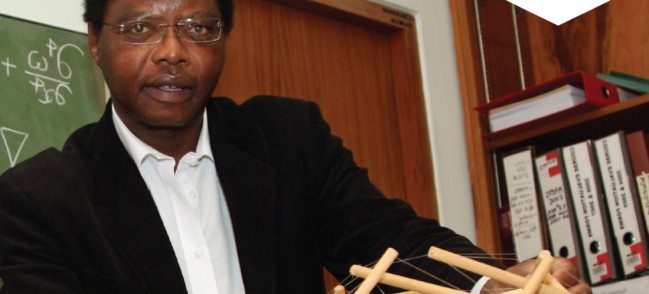Alphonse Zingoni, Professor of Structural Engineering and Mechanics in the Department of Civil Engineering, was invited by the Royal Society of the United Kingdom in February 2013 to present his work on symmetry and applications of group theory in structural mechanics at one of the themed meetings of the Royal Society.
The only civil engineer among a distinguished group of mathematicians, physicists, chemists and engineers, and the only speaker from Africa, Zingoni explained how the mathematical concepts of group theory, exploited for many years by physicists and chemists to study problems in crystallography, quantum mechanics and molecular symmetry, could also be successfully applied in engineering.
According to Zingoni, not only can group-theoretic formulations vastly reduce computational effort (an important consideration in large-scale engineering problems), but they can also allow researchers to gain valuable insights into complex phenomena in engineering mechanics such as bifurcation, stability, vibration and non-linear dynamics. Such insights greatly enhance the capacity to predict unfavourable or catastrophic behaviour in engineering systems, making it possible to design these systems more safely and more effectively.
The written version of Zingoni’s lecture has recently been published as a research paper in the prestigious Philosophical Transactions of the Royal Society, which was founded in 1662, and is the oldest scientific journal in the world.



Comments are closed.